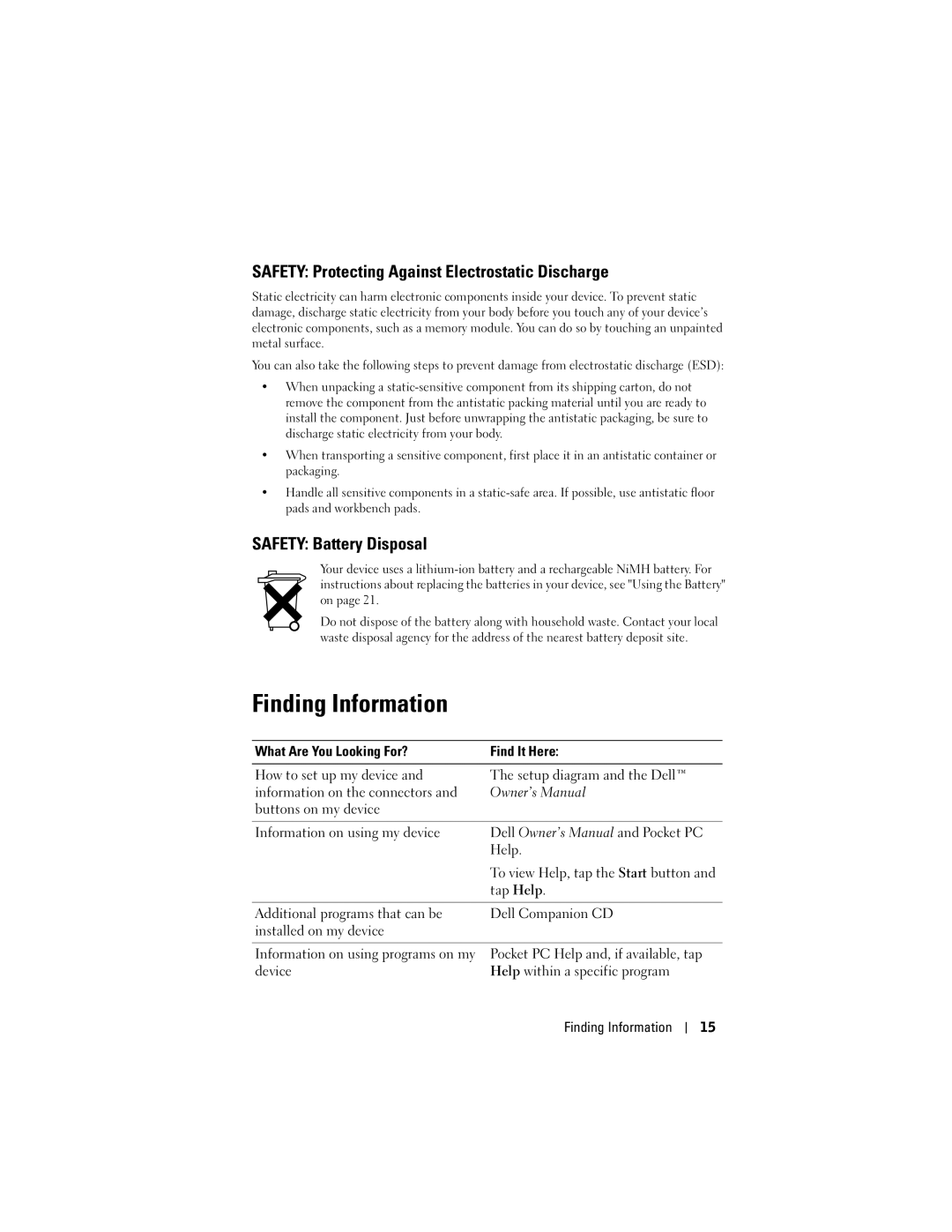
SAFETY: Protecting Against Electrostatic Discharge
Static electricity can harm electronic components inside your device. To prevent static damage, discharge static electricity from your body before you touch any of your device’s electronic components, such as a memory module. You can do so by touching an unpainted metal surface.
You can also take the following steps to prevent damage from electrostatic discharge (ESD):
•When unpacking a
•When transporting a sensitive component, first place it in an antistatic container or packaging.
•Handle all sensitive components in a
SAFETY: Battery Disposal
Your device uses a
Do not dispose of the battery along with household waste. Contact your local waste disposal agency for the address of the nearest battery deposit site.
Finding Information
What Are You Looking For? | Find It Here: |
|
|
How to set up my device and | The setup diagram and the Dell™ |
information on the connectors and | Owner’s Manual |
buttons on my device |
|
|
|
Information on using my device | Dell Owner’s Manual and Pocket PC |
| Help. |
| To view Help, tap the Start button and |
| tap Help. |
|
|
Additional programs that can be | Dell Companion CD |
installed on my device |
|
Information on using programs on my device
Pocket PC Help and, if available, tap Help within a specific program
Finding Information
15
